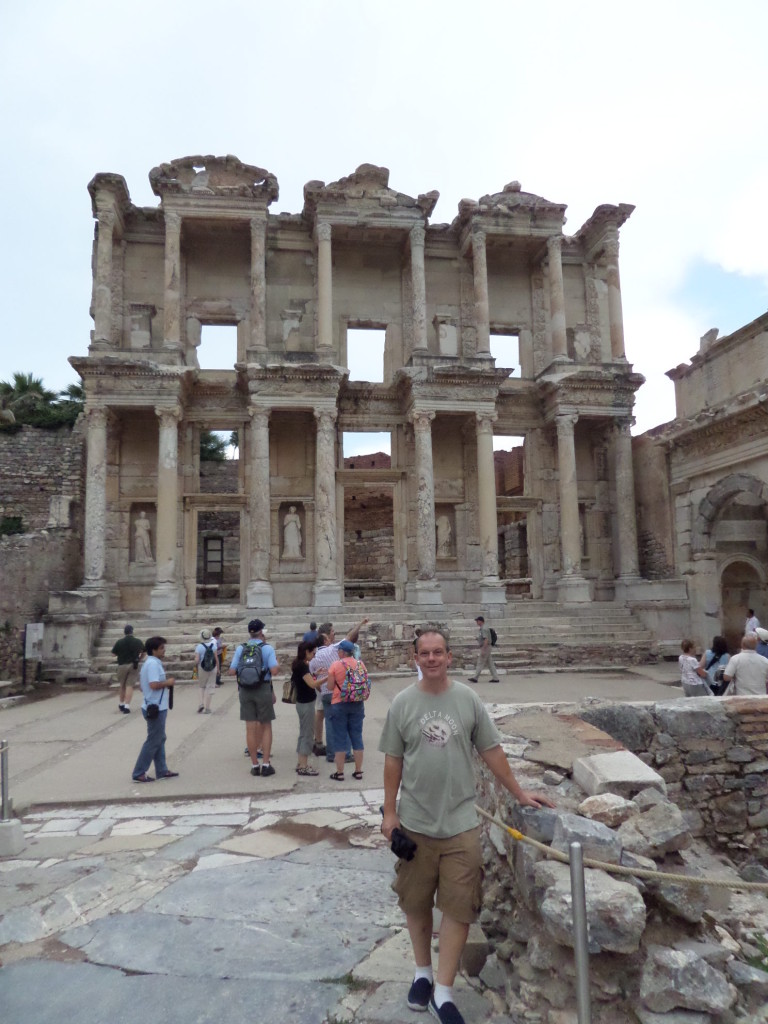
Dr. Herschler pictured at the Library of Celsus, an ancient Roman building in Ephesus, now part of Selcuk, Turkey.
He could be happy to simply consider himself to be an established expert in international affairs. But, for politics professor Dr. Stephen Herschler, no amount of “book knowledge” can substitute for immersive experiences when learning about a culture or society. He easily “walks the talk,” engaging in the same real-world learning he encourages his students to pursue.
Dr. Herschler has lived on four continents, speaks three languages, and has taught comparative politics at Oglethorpe for 12 years. “I’ve spent time in Europe, Asia, and Africa, but the Middle East has always been a gap for me,” he admits. And, with the modernization of the Middle East and Islamic culture a vital part of the current global political conversation, it was a poignant time to gain a personal perspective.
This past summer, Dr. Herschler spent 10 days in Turkey with The Atlantic Institute, absorbing the rich culture, historical abundance, and political eccentricity of a country that is suspended between two very different worlds. Turkey has always found itself in an
identity crisis between the East and the West, creating a unique (and often confusing) cultural climate. This is why The Atlantic Institute, an Atlanta-based nonprofit, strives to bridge the gap between the Middle East and West by facilitating dialogue and fostering understanding. The organization is a derivative of the Istanbul Center, which bolsters the same goals to embrace diversity and build tolerance. This annual excursion of educators and civic leaders from the southeast is an opportunity to inform those who are in a position to share knowledge with students and citizens, hopefully spreading a better understanding of Turkey. Dr. Herschler joined other educators representing Atlanta-area institutions, including Agnes Scott College, Emory University, Georgia Institute of Technology, Georgia State University, and Morehouse College. The educators’ differing perspectives were a compelling part of the journey and, according to Dr. Herschler, reminiscent of the interdisciplinary conversations he witnesses in his Oglethorpe classes. “Hearing questions and comments from the varying disciplines made every day more interesting,” he said.
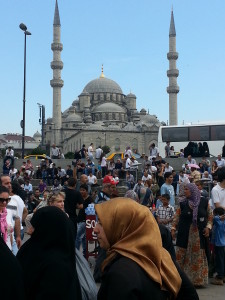 Indeed, the travelers’ diverse interests sometimes made for spontaneous adventures. While staying in the city of Sanliurfa, a fellow educator expressed interest in Turkish music, prompting their guide to arrange for an outing to a local university. The group was treated to an impromptu concert with classical Turkish instruments.
Indeed, the travelers’ diverse interests sometimes made for spontaneous adventures. While staying in the city of Sanliurfa, a fellow educator expressed interest in Turkish music, prompting their guide to arrange for an outing to a local university. The group was treated to an impromptu concert with classical Turkish instruments.
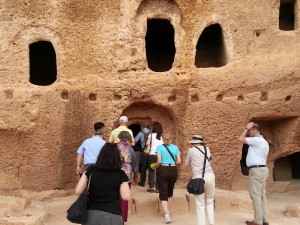 During the 10-day trek, the crew also visited the cities of Istanbul, Gazi Antep, Ankara, Izmir, and Mardin-each of which contains stunning historical sites and manmade marvels. Greek and Roman ruins are scattered throughout the the land, sites of Biblical significance (such as the house of the Virgin Mary and the landing site of Noah’s Ark) are abundant, and of course, monuments such as Hagia Sophia and the Blue Mosque are “must-see” edifices. According to Dr. Herschler, one particularly striking site was Gobekli Tepe, the world’s earliest known place of worship, which outdates Stonehenge by approximately six millennia.
During the 10-day trek, the crew also visited the cities of Istanbul, Gazi Antep, Ankara, Izmir, and Mardin-each of which contains stunning historical sites and manmade marvels. Greek and Roman ruins are scattered throughout the the land, sites of Biblical significance (such as the house of the Virgin Mary and the landing site of Noah’s Ark) are abundant, and of course, monuments such as Hagia Sophia and the Blue Mosque are “must-see” edifices. According to Dr. Herschler, one particularly striking site was Gobekli Tepe, the world’s earliest known place of worship, which outdates Stonehenge by approximately six millennia.
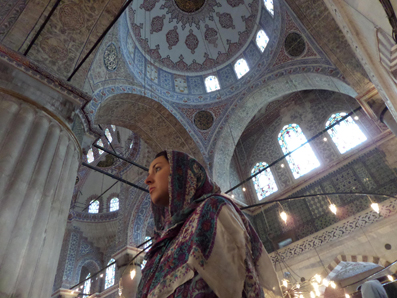 Every day, Dr. Herschler and his peers took part in discussions on topics ranging from social reforms in Turkey to interfaith dialogues, and even learned about traditional Turkish carpet making. Each topic was presented from a uniquely Turkish perspective which opened the travelers’ minds to a side of the story they may have never before have heard. Their excursions were led by Turkish guides who were eager to share their knowledge, culture, and history. As Dr. Herschler learned more about the politics and current issues of Turkey, he started to form connections with the course material of the classes he teaches at Oglethorpe, especially Comparative Politics. This course—famous among OU politics majors—surveys a multiplicity of theories on the development and stability of international governments.
Every day, Dr. Herschler and his peers took part in discussions on topics ranging from social reforms in Turkey to interfaith dialogues, and even learned about traditional Turkish carpet making. Each topic was presented from a uniquely Turkish perspective which opened the travelers’ minds to a side of the story they may have never before have heard. Their excursions were led by Turkish guides who were eager to share their knowledge, culture, and history. As Dr. Herschler learned more about the politics and current issues of Turkey, he started to form connections with the course material of the classes he teaches at Oglethorpe, especially Comparative Politics. This course—famous among OU politics majors—surveys a multiplicity of theories on the development and stability of international governments.
Upon his return, Dr. Herschler decided to add a series about Turkey to his syllabus, citing his trip as the impetus. “Before this experience, I possessed ‘book knowledge’ of Turkey and of Islam,” he said, “but I did not understand it fully as a living community. Now I know I can address the topic fairly.”
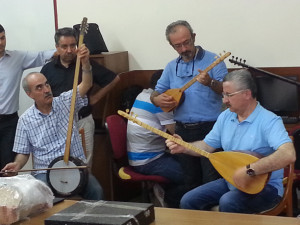 But, this experience affected much more than the content of his courses, he says. “My new knowledge facilitates connections with students who are interested in that part of the world.” In fact, even while still in Istanbul, he connected with Oglethorpe student and advisee John Yager ’15, who was interning abroad for through Koç University in Istanbul. The two were able to catch up and talk Middle Eastern politics over an authentic Turkish dinner.
But, this experience affected much more than the content of his courses, he says. “My new knowledge facilitates connections with students who are interested in that part of the world.” In fact, even while still in Istanbul, he connected with Oglethorpe student and advisee John Yager ’15, who was interning abroad for through Koç University in Istanbul. The two were able to catch up and talk Middle Eastern politics over an authentic Turkish dinner.
“Now, Turkey is a part of my life,” says Dr. Herschler. “And, I have become more attuned to Turkish culture here in Atlanta.” Asked about his plans to return, he admits he would love to go back to Turkey, but as always, has his sights set on even more international horizons. “I want to go back to Asia. It has been a decade since I’ve visited, and that is quite long enough.”
Christie Pearce ’15 has always had a love affair with the written word and—more recently—political science. She hopes to continue her post graduate education by studying political marketing and campaign strategies for female candidates in the United States.
